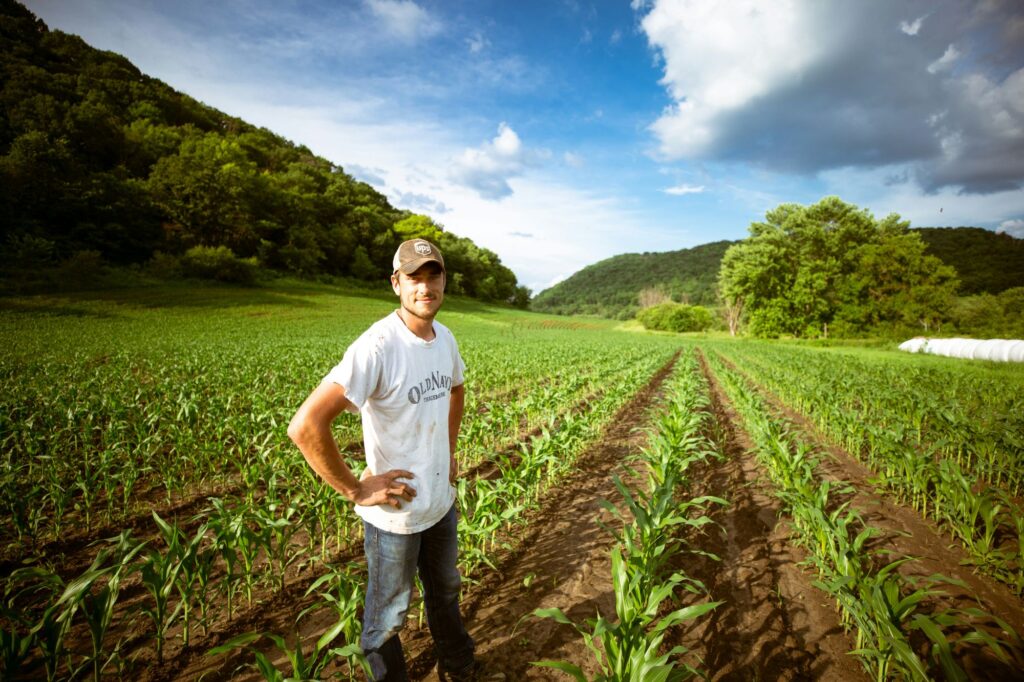
Two months ago, I visited a friend’s farm at his request. Let’s call him Dennis.
Dennis had recently transplanted tomato seedlings and needed some guidance on their management. I arrived at his home in the late afternoon, only to find the house locked. His grandmother told me he was down at the farm chasing away monkeys. There was no sign of his wife or children.
After getting directions, I made my way to the farm. From a distance, I could hear dogs barking fiercely. As I got closer, I saw Dennis hurling stones into the bushes while his dogs barked toward the same direction. He wore a grey vest, brown pants that were once white, and a pair of muddy black boot.
“Bro,” he said with a grin, “I’m not letting those guys near my maize farm!”
“Monkeys can be quite a nuisance. Trust me, I know,” I replied.
He led me to his tomato farm, and I was impressed. It was a good-sized plot, and the tomatoes looked healthy. I gave him some tips on tomato management practices—staking, watering, pest control—and we discussed his plans for the season. By the time I left at sundown, I was confident he would succeed. He was passionate, focused, and driven.
Also read: Importance of Pruning in Tomatoes
But about a month later, I met one of his neighbors and casually asked how the tomatoes were doing. The answer shocked me.
“They’re all gone.”
Apparently, Dennis’ wife had left him shortly after my visit, leaving him alone with their two young children. The emotional weight and daily responsibilities overwhelmed him. He could no longer manage the farm properly. The monkeys returned, and with no one to scare them off they had a field day and with no one to tend the plants, the tomato crop failed.
When Family Problems Hurt the Farm
Dennis’ story is a real and painful example of how family conflicts can directly affect food production and livelihoods. Farms don’t operate in isolation—they rely heavily on the stability of the home behind them.
Here’s how a breakdown in the family can damage farming efforts:
1. Loss of Labor
In many households, farming is a shared duty. When a partner leaves or family support disappears, the workload becomes too much for one person.
2. Emotional Burnout
Stress, heartbreak, and depression can distract farmers from important decisions and daily tasks, leading to crop neglect or poor outcomes.
3. Neglect of Routine Activities
Irrigation, weeding, pruning, pest control—these are time-sensitive tasks. When the farmer is overwhelmed or distracted, these jobs are delayed or skipped entirely.
4. Increased Threats from Wildlife or Pests
Just like in Dennis’ case, a distracted or absent farmer opens the door for monkeys, pests, or disease to wreak havoc on the crops.
How Farmers Can Protect Their Crops During Personal Crisis
Family conflicts may be personal, but their impact on the farm can be devastating. Fortunately, there are a few things that can help reduce the damage:
1. Build a Support Network
Encourage strong community ties with neighbors, church groups, or farming cooperatives. These can step in with temporary help during difficult periods.
2. Invest in Crop Protection
Simple barriers like fencing, scarecrows, or trained dogs can keep pests and animals at bay when human presence is limited.
3. Use Simple Technology
Drip irrigation systems, timers, and mobile alerts can automate parts of the work and reduce dependence on manual labor.
4. Talk to Someone
Mental wellness is just as important as fertilizer and rain. Farmers going through emotional stress should feel safe to seek help, whether through counseling, friends, or community leaders.
5. Diversify and Insure
Growing different crops and taking out affordable insurance policies can cushion the farm from total loss if something goes wrong.
Final Thoughts
Sometimes it’s not drought, pests, or market prices that destroy a farm—sometimes it’s a broken heart or a broken home. Dennis’ story is a powerful reminder that behind every thriving farm is a family holding it together. If we truly want to build food security and sustainable agriculture, we must also support the emotional and social well-being of our farmers. Because when the family breaks down, the farm can break down too.

Disclosure: This banner contains an affiliate link. I may earn a commission if you purchase through it, at no extra cost to you.
